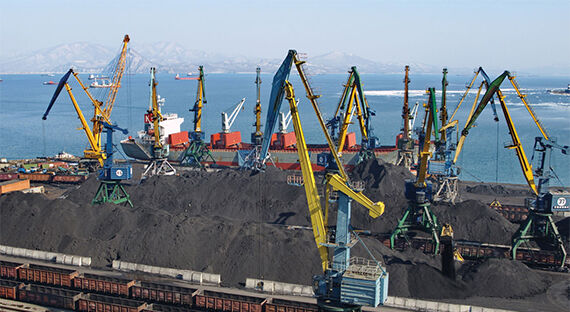
Hess Corp. (Hess) has entered into two separate agreements with a joint venture formed by Indonesian state-owned PT Pertamina and Thailand’s national petroleum operator PTT Exploration & Production Co. Ltd. to sell its interests in the Pangkah and Natuna A assets (Assets) offshore Indonesia for US$1.3 billion. The agreements are expected to close before the end of first-quarter 2014.In the first three quarters of this year, the Assets produced a combined 15,000 boe/d net. Hess is a partner with Kuwait Foreign Petroleum Exploration in Pangkah and will use the sales proceeds to continue repurchasing shares under an existing US$4 billion authorisation. Earlier this year Hess disclosed plans to divest its exploration and production assets in Indonesia and Thailand as well as its remaining downstream businesses, including terminals, retail, marketing, and trading divisions. (From Oil & Gas Journal 2 December 2013)
Myanmar announces details of bids in offshore bidding process
The Myanmar Oil and Gas Enterprise (MOGE) has announced it has received bids from thirty companies including both major private international and state-owned oil and gas companies, in response to Myanmar’s recent offshore licensing round. Bidders included Daewoo, PTTEP, TOTAL, Unocal Myanmar Offshore (Chevron), GAIL India, ONGC and Petronas among others. Companies had the option of bidding for up to three of eleven shallow water blocks and nineteen deep water blocks. Ten companies have submitted bids for three blocks. The eleven shallow water blocks offered in the round comprise three blocks in the Rakhine Offshore Area, three in the Moattama Offshore Area and five in the Tanintharyi Offshore Area. Of the nineteen deep water blocks, twelve are in the Rakhine area, three in Moattama and five in Tanintharyi. (From Platts.com 28 November 2013)
Rio Tinto pledges to cut capital expenditure by US$6bn in two years
Rio Tinto has pledged to cut its capital spending by at least 20% in each of the next two years in an attempt to win back investors. The Company said its capital expenditure would fall from US$14bn this year to US$11bn in 2014 and to US$8bn in 2015. The anticipated reductions come after last week’s announcement by the Company that it would increase production in its projects in Australia’s Pilbara region by up to 25%.The Company has come into criticism from shareholders for overspending on new projects and acquisitions during the height of the mining boom. In 2012 the Company’s net debt rose to more than $19bn.The Company has said it had cut spending on exploring and evaluating new projects by $800m in 2013. (Source Financial Times 3 December 2013)

CITIC Pacific set to take delivery of first iron ore shipment from Australia
CITIC Pacific’s (CITIC) first shipment of iron ore has been made from the company’s US$8bn Sino-Iron ore project (Project) in Western Australia. The shipment will be delivered to CITIC steel mill in Jiangsu. The Project represents China’s largest investment in Australia.
The Project ran into various financial obstacles, including rising costs during construction. The Project involves taking low grade magnetite ore and turning it into a concentrate with high iron content through a process of grinding, concentration and magnetic separation. The project is designed to produce 24 million metric tons of iron ore concentrate annually to supply iron ore to CITIC owned steel plants as well as other steel producers in China. (Source China Daily 2 December 2013)
LME approves changes to its warehousing policy
The Board of the London Metal Exchange (LME) has approved changes to its warehousing policy designed to cut queues at warehouses. The changes follow a three-month consultation with the global metals industry. The LME has closely engaged with the UK’s Financial Conduct Authority to ensure that the changes are consistent with the LME’s regulatory requirements. The changes are intended to reduce the presence of warehouse queues. Queues are problematic for a number of reasons, but primarily, because the recipient of an LME warrant must pay rent while in the queue, and there is an opportunity cost to waiting for metal. The changes include:-
- 100-day threshold for queues has been reduced to 50 days i.e. warehouses with waiting times above 50 days will be required to ship out metal every day (Load-Out Requirement) exceeding the amount they take in by at least 1,500 metric tons under the changes. (Threshold)
- The calculation of the Load-Out Requirements– the LME has decided to allow the calculation of the requirement on an averaged basis over the calculation period
- General power to investigate queue formation – the LME will in the future be empowered to investigate particular cases of queue formation and implement special measures to address any abusive behaviour found
- Provision of per-warehouse information – the LME intends to provide per-warehouse information on stocks and queues to industry participants on a regular but delayed basis
- Commitment of traders report – with a view to achieving broader transparency the LME is to discuss the format of a ‘traders report’ with industry practitioners
- Representation of physical market – LME will create a Physical Market Committee with invited representatives from across the industry.
- Steel billet – the steel billet contract has been converted from a global to a European basis, with the result that warranted steel in non-European warehouses has to be withdrawn by 30 April 2014 or shipped to a European location. However, much of the steel billet is still sitting in queues. Accordingly, a separate load-out rate is provided for steel.
The LME will reserve a general power to take specific action against warehouses which it considers to have been intentionally creating or maintaining queues, even if such queues remain below the Threshold. The new rules will take effect on 1 April 2014. Certain elements of the package of measures will require further discussion with warehousecompanies, but it is not expected that this will delay the implementation of the measures. (Source www.lme.com 3 December 2013)
This newsletter is for information purposes only.
Its contents do not constitute legal advice and it should not be regarded as a substitute for detailed advice in individual cases. Transmission of this information is not intended to create and receipt does not constitute a lawyer-client relationship between Charltons and the user or browser. Charltons is not responsible for any third party content which can be accessed through the website.
If you do not wish to receive this newsletter please let us know by emailing us at unsubscribe@charltonslaw.com
